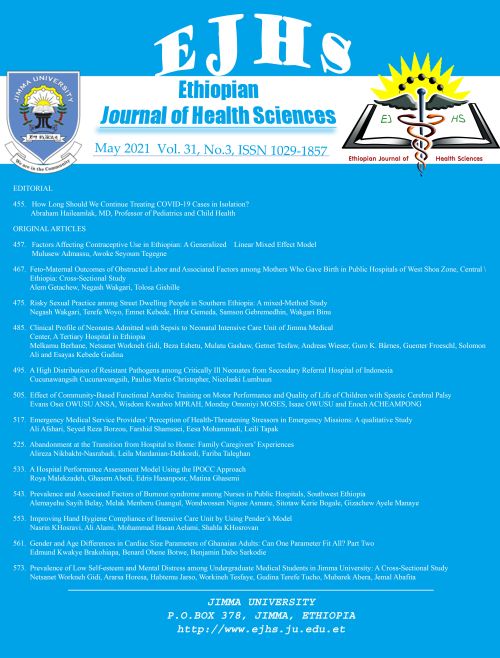Main Article Content
Factors Affecting Contraceptive Use in Ethiopian: A Generalized Linear Mixed Effect Model
Abstract
BACKGROUND: Ethiopia is the second most populous nations in Africa. Family planning is a viable solution to control such fast-growing population. This study aimed to assess the prevalence of contraceptive use and its predictors in Ethiopia.
METHODS: About 4,563 women were drawn randomly by Central Statistics Agency from its master sampling frame. The survey was conducted from January, 2014 to March, 2016 within six months’ interval for the study period. The study was conducted using secondary data collected by PMA2020/Ethiopia project. Negative Binomial regression model was employed for data analysis. The model was selected using information criterion.
RESULTS: Predictors like easy access of health service, residence area, level of health institutions, regions, availability of community health volunteers, experience sharing, support from husbands, level of education and employment status of women as well as residence area significantly affected the performance of contraceptive use in Ethiopia. From the interaction effects of health centers with region and health post with number of opening days per a week were significant predictors of the contraceptive use.
CONCLUSION: The performance of contraceptive use was different from one individual to another because of their experience sharing, support from their husbands, employment status and education level. A woman who got encouragement to use birth control from her husband had good performance to be effective for her contraceptive use. There should be an experience sharing/orientation, about use of birth control to protect women from unwanted pregnancy. Hence, rural women should get experience from urban women.






